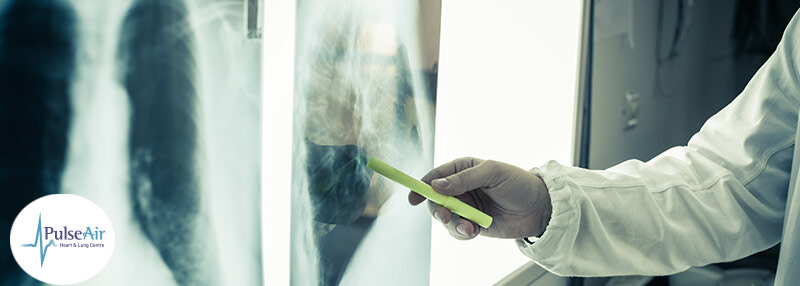Respiratory injuries can significantly impact your ability to breathe and function, often leading to long-term complications if left untreated. These injuries affect the lungs and airways and can result from a variety of causes — some sudden, others cumulative over time.
At Pulse Air Heart and Lung Centre, we’re committed to helping you understand, identify, and manage respiratory injuries so you can breathe easier and live healthier. Whether you’ve experienced a recent incident or are simply looking to stay informed, here’s what you need to know.
What Is a Respiratory Injury?
A respiratory injury refers to any damage to the lungs, airways, or surrounding structures that impairs normal breathing. These injuries can be acute (sudden and severe) or chronic (developing over time), and may result from:
- Smoke inhalation from fires, cigarettes, or poorly ventilated environments
- Chemical exposure to cleaning agents, industrial fumes, or pesticides
- Blunt trauma to the chest from accidents, falls, or physical impact
- Inhalation of toxic gases such as carbon monoxide or chlorine
- Prolonged exposure to airborne irritants like dust, mold, or asbestos
Respiratory injuries can lead to inflammation, scarring, or even permanent damage to lung tissue, making early detection and treatment essential.
Common Symptoms of a Respiratory Injury
Recognizing the signs of a respiratory injury early can make a significant difference in your recovery. Symptoms may include:
- Shortness of breath or difficulty breathing
- Persistent coughing or wheezing
- Chest pain or tightness
- Hoarseness or voice changes
- Dizziness, confusion, or fatigue
- Coughing up blood or mucus
If you experience any of these symptoms — especially after an incident involving smoke, chemicals, or trauma — seek medical attention immediately.
How Respiratory Injuries Are Diagnosed
At Pulse Air Heart and Lung Centre, we use advanced diagnostic tools to assess lung function and detect signs of injury. One of the most effective methods is a Pulmonary Function Test (PFT), which measures how well your lungs are working. PFTs can help identify:
- Reduced lung capacity
- Obstructive or restrictive lung patterns
- Early signs of chronic conditions like COPD or asthma
- Damage from environmental or occupational exposure
These tests are non-invasive and provide valuable insights into your respiratory health.
When to Seek Help
If you’ve been exposed to smoke, chemicals, or physical trauma and are experiencing respiratory symptoms, don’t wait. Prompt evaluation and treatment can prevent complications and support faster recovery. Our team at Pulse Air Heart and Lung Centre specializes in:
- Respiratory injury assessment
- Personalized treatment plans
- Ongoing pulmonary care and rehabilitation
Take Control of Your Lung Health
Your lungs are vital to every breath you take and protecting them starts with awareness. Whether you're recovering from a respiratory injury or want to monitor your lung health proactively, Pulse Air Heart and Lung Centre is here to help.
Contact us today to schedule a consultation or pulmonary function test. Let’s work together to ensure your lungs stay strong, healthy, and resilient.


